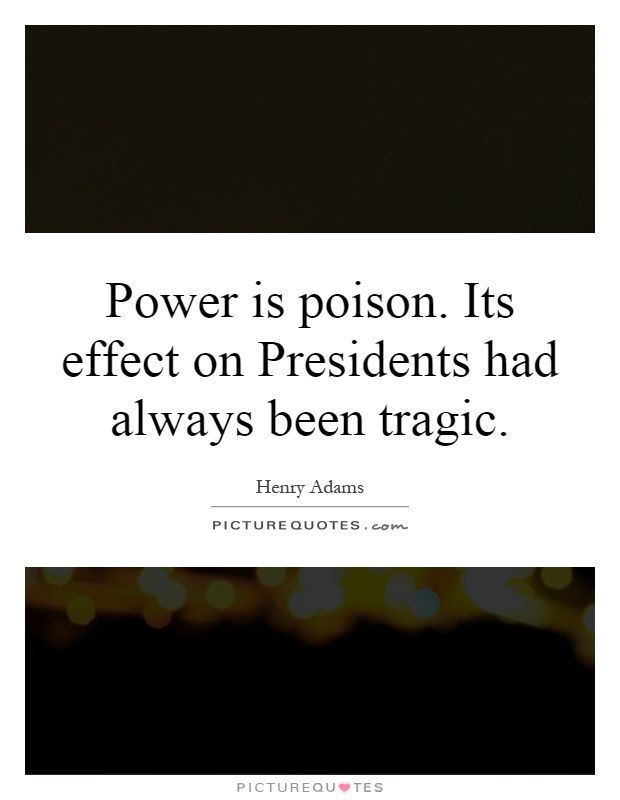Power is poison. Its effect on Presidents had always been tragic

Power is poison. Its effect on Presidents had always been tragic
Henry Adams, a prominent American historian and political commentator, famously stated that "power is poison. Its effect on Presidents had always been tragic." This sentiment reflects Adams' belief that the immense power wielded by Presidents of the United States can have detrimental effects on their personal and professional lives.Throughout American history, there have been numerous examples of Presidents who have been consumed by the power of their office. From the corruption scandals of the Grant administration to the impeachment of Andrew Johnson, the presidency has often been a breeding ground for tragedy and scandal. Adams' assertion that power is poison suggests that the allure of power can lead individuals to make unethical or immoral decisions in pursuit of their own interests.
One of the most tragic examples of the corrosive effects of power on a President is the case of Richard Nixon. Nixon's presidency was marred by the Watergate scandal, in which he authorized a break-in at the Democratic National Committee headquarters in an attempt to gain an advantage in the 1972 election. The subsequent cover-up and Nixon's eventual resignation from office demonstrated the destructive impact that power can have on an individual's judgment and integrity.
Similarly, the presidency of Bill Clinton was marked by scandal and controversy, most notably his affair with White House intern Monica Lewinsky. Clinton's attempts to cover up the affair and his subsequent impeachment by the House of Representatives underscored the ways in which power can lead individuals to make poor decisions and engage in unethical behavior.
Adams' assertion that power is poison is a cautionary tale for Presidents and political leaders. It serves as a reminder of the dangers of unchecked power and the importance of ethical leadership. By recognizing the potential pitfalls of power, Presidents can strive to govern with integrity and humility, avoiding the tragic consequences that have befallen so many of their predecessors.












 Friendship Quotes
Friendship Quotes Love Quotes
Love Quotes Life Quotes
Life Quotes Funny Quotes
Funny Quotes Motivational Quotes
Motivational Quotes Inspirational Quotes
Inspirational Quotes